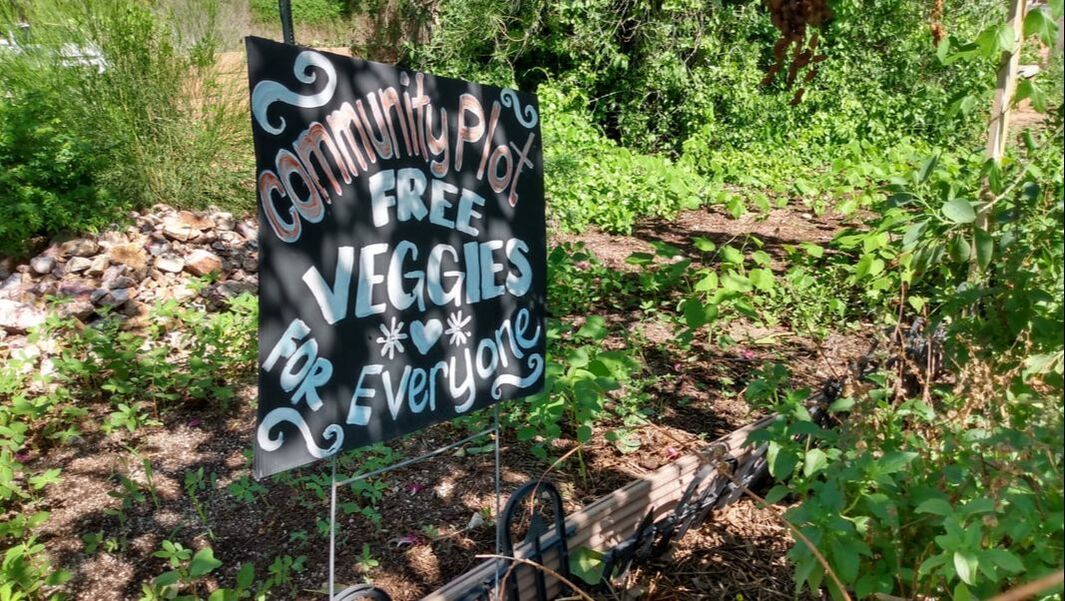Cultivating Health through Community Gardens

Community gardening has a long history, beginning in America at the turn of the 20th century with allotment gardens, and re-emerging during the World Wars as “Victory Gardens.” Today, community gardens are often used to revitalize communities affected by urban decline to build a sense of social responsibility, provide nutritious food, teach environmental stewardship and create a safe place for community members.
At their core, community gardens are defined as a piece of land where plants are grown and maintained by members of the community. However, many would argue that they’re so much more. According to Designing Healthy Communities, community gardens: “Play a significant role in enhancing the physical, emotional, and spiritual well-being necessary to build healthy and socially sustainable communities.”
The American Community Gardening Association (ACGA) links more than 2,000 gardens across the United States and Canada. At least 20 community gardens are located within the city of Tucson.
Melissa Mundt, community engagement manager at the Community Gardens of Tucson, says their organization has a network of thousands of local gardeners and supporters who learn, share and practice desert-appropriate, sustainable food production. They have an active membership of 400 people who garden in individual plots.
When asked what the health benefits of community gardening are for individuals and communities, Mundt said she believes community gardens function, “As a green space for getting your hands dirty and getting in touch with the seasons, as a space to get some exercise and get outside, a place to meet people and work together and, of course, a place to grow some vegetables.” She went on to explain that during the COVID-19 pandemic, it’s become incredibly apparent how beneficial community gardens can be for people’s mental health.
“Gardens were one of the few places that felt safe to go, to feel connected to nature and grounded. Gardens became a refuge for people to get out of the house, grow food, relax and unwind from the stress of quarantine or job loss,” Mundt said.
Community gardens around the world have been credited with a multitude of beneficial health outcomes for participants. These benefits include an enhancement of nutrition through the production of fruits and vegetables; the opportunity for regular movement that contributes to a person’s recommended levels of physical activity; and the promotion of mental well being by encouraging mindfulness and reducing stress.
Apart from promoting positive health outcomes for individuals, communities at large also benefit from community gardens by:
- Reducing the prevalence of food deserts and mitigating food insecurity
- Creating a space for sharing knowledge, cultures, and traditions between generations of gardeners
- Sustaining the environment by using organic gardening practices, creating pollinator habitats and conserving water
- Promoting community and civic engagement
- Strengthening social and community-building skills
The list could go on and on.
The Community Gardens of Tucson has robust programming that supports the surrounding community in various ways. According to Mundt, the organization serves families in low-income neighborhoods, seniors and refugees who have moved to Tucson from Africa, Eastern Asia and South America. Additionally, they have a positive impact on hundreds of elementary school children and their families through their community gardens located at schools.
Collaborating with school faculty, the Community Gardens of Tucson provides science-based educational programs in the garden that offer children hands-on learning for growing and eating veggies, as well as connecting them with the natural ecosystem of the garden.
They also provide workshops throughout the year and desert gardening resources for their network, along with exciting volunteer opportunities.
If you live in the Tucson area and are ready to “dig in,” check out the Community Gardens of Tucson’s website at https://communitygardensoftucson.org.
By Adriana Bachmann, as seen in Green Living Magazine.

